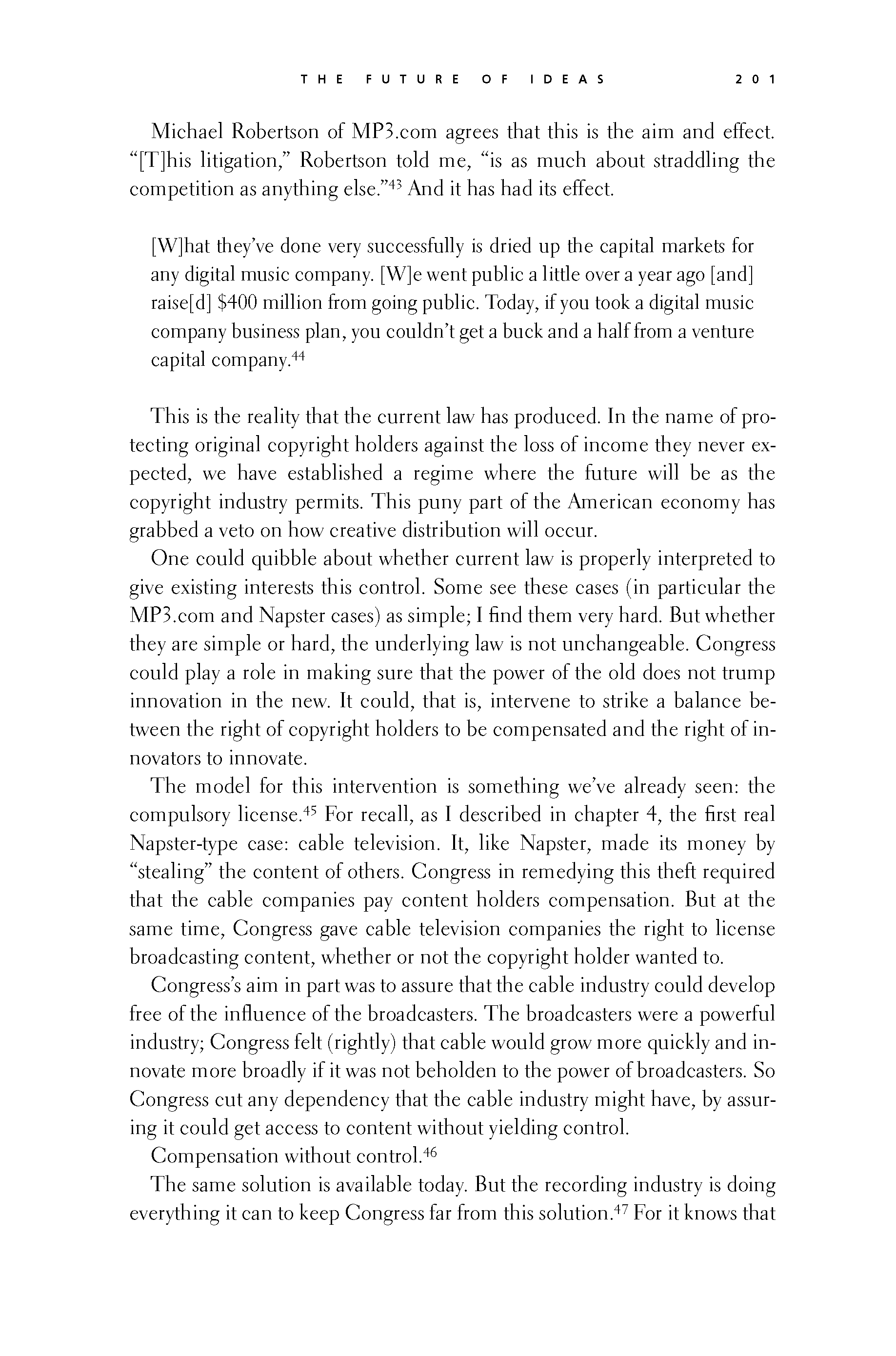 p200 _
-chap- _
toc-1 _
p201w _
toc-2 _
+chap+ _
p202
p200 _
-chap- _
toc-1 _
p201w _
toc-2 _
+chap+ _
p202
Michael Robertson of MP3.com agrees that this is the aim and effect.
"[T]his litigation," Robertson told me, "is as much about straddling the
competition as anything else."[11-43] And it has had its effect.
____ [W]hat they've done very successfully is dried up the capital markets for
____ any digital music company. [W]e went public a little over a year ago [and]
____ raise[d] $400 million from going public. Today, if you took a digital music
____ company business plan, you couldn't get a buck and a half from a venture
____ capital company.[11-44]
This is the reality that the current law has produced. In the name of pro-
tecting original copyright holders against the loss of income they never ex-
pected, we have established a regime where the future will be as the
copyright industry permits. This puny part of the American economy has
grabbed a veto on how creative distribution will occur.
One could quibble about whether current law is properly interpreted to
give existing interests this control. Some see these cases (in particular the
MP3.com and Napster cases) as simple; I find them very hard. But whether
they are simple or hard, the underlying law is not unchangeable. Congress
could play a role in making sure that the power of the old does not trump
innovation in the new. It could, that is, intervene to strike a balance be-
tween the right of copyright holders to be compensated and the right of in-
novators to innovate.
The model for this intervention is something we've already seen: the
compulsory license.[11-45] For recall, as I described in Chapter 4, the first real
Napster-type case: cable television. It, like Napster, made its money by
"stealing" the content of others. Congress in remedying this theft required
that the cable companies pay content holders compensation. But at the
same time, Congress gave cable television companies the right to license
broadcasting content, whether or not the copyright holder wanted to.
Congress's aim in part was to assure that the cable industry could develop
free of the influence of the broadcasters. The broadcasters were a powerful
industry; Congress felt (rightly) that cable would grow more quickly and in-
novate more broadly if it was not beholden to the power of broadcasters. So
Congress cut any dependency that the cable industry might have, by assur-
ing it could get access to content without yielding control.
Compensation without control.[11-46]
The same solution is available today. But the recording industry is doing
everything it can to keep Congress far from this solution.[11-47] For it knows that
[[201]]
p200 _
-chap- _
toc-1 _
p201w _
toc-2 _
+chap+ _
p202